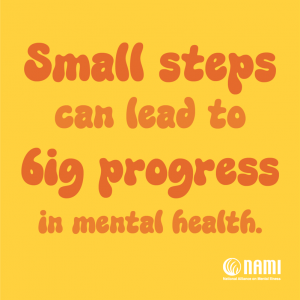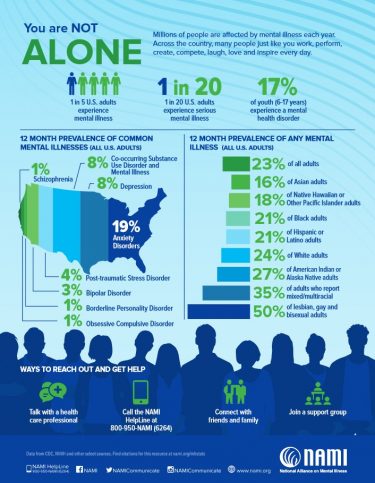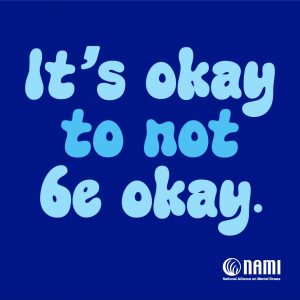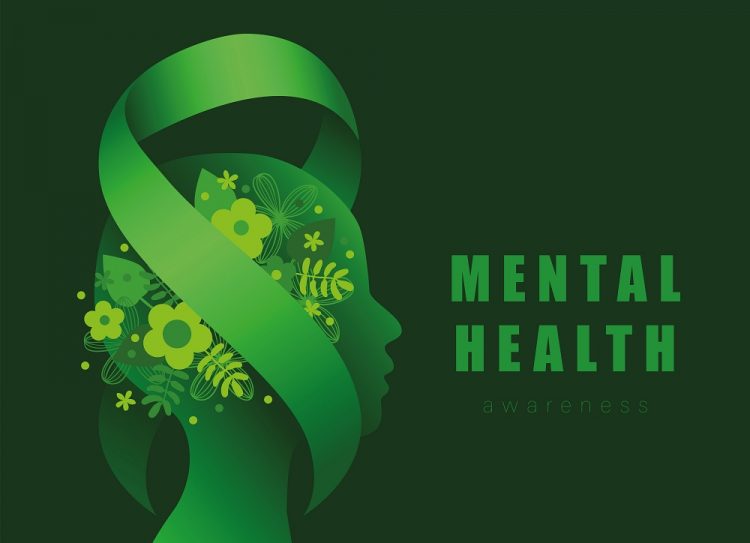May 2, 2024
Support, educate or advocate this Mental Health Awareness Month
May is Mental Health Awareness Month in the U.S., as it has been since 1949, an opportunity to focus or refocus on self-care, acknowledge the importance of mental health and honor the courage of millions of people affected by mental illness.
Many people prioritize their physical health, but mental health is equally important for holistic wellness. In fact, mental and physical health are inexorably intertwined. According to the CDC, untreated mental health issues like depression can increase the risk for long-term physical health issues like heart disease, stroke and diabetes. The World Health Organization reports depression as one of the leading causes of disability and suicide and the second leading cause of death for 15-29-year-olds.
Some 50% of Americans will be diagnosed with a mental illness or disorder at some point in their lives. Fewer than half of them will receive treatment for it.
This year, the National Alliance on Mental Illness (NAMI), the feature nonprofit of the UW Combined Fund Drive annual campaign, is celebrating Mental Health Awareness Month with the Take the Moment campaign, fostering open dialogues and cultivating empathy and understanding.
NAMI Seattle was the featured nonprofit of the 2023 UWCFD campaign. UW faculty, staff and retirees contributed over $21,000 to support NAMI and its mission to support mental health care.
 This month, take some time to prioritize your mental health:
This month, take some time to prioritize your mental health:
- Take care of your body. Get enough sleep, eat right and stay active.
- Connect with others. Talk to trusted people in your life about how you are feeling.
- Take time to unwind. Carve out time for destressing and self-care.
- Honor yourself. Recognize and accept your struggles as real and legitimate.
Learn more
- Read: Mental Health Awareness Month: Youth Anxiety Skyrockets in “Generation Covid”
- Read: Dr. Pamela Collins: champion of global mental health advocacy
- Explore: Art for Self-Care and Mental Health
- Understand: Suicide Prevention: Know the Warning Signs to Save Lives
Resources for BIPOC communities
Though mental health issues are common in all communities in the U.S., people of color tend to bear a disproportionate burden of disability resulting from mental disorders, according to the American Psychiatric Association. The APA also reports that BIPOC people have higher rates of persistent mental health challenges and are less likely to receive mental health care than the general population.
 This This list of mental health resources from Massachusetts General Hospital may be useful to BIPOC-identifying individuals seeking support for mental health concerns and/or coping with race-related stressors, whether current or historical.
This This list of mental health resources from Massachusetts General Hospital may be useful to BIPOC-identifying individuals seeking support for mental health concerns and/or coping with race-related stressors, whether current or historical.
Also useful is this list of 44 Mental Health Resources for Black People published in 2020 by Self magazine, including links to influential thinkers and organizations focused on mental health in Black communities, directories for Black mental health practitioners and helpful tips for seeking support.
For Native and Indigenous people, who experience serious psychological distress at 2.5 times the rate of the general population, there are these dedicated resources.
We R Native is a library of resources for Native and indigenous youth with practical strategies for building resilience, coping with diverse mental health challenges, and seeking help and support. Native & Indigenous Peoples Addiction & Mental Health Support from Live Another Day is a list of resources to support Native and indigenous mental health with a focus on suicide prevention and substance abuse. And StrongHearts Native Helpline is a confidential and anonymous culturally appropriate domestic violence helpline for Native Americans.
Are you or someone you know in crisis? Call the 988 Suicide and Crisis Lifeline 24/7 to speak to a counselor, including those trained to support LGBTQ+ youth and veterans.
Support
Consider making a one-time contribution or setting up payroll deduction to one of our CFD member organizations working to provide quality mental heath services and destigmatize seeking care:
Born this Way Foundation – supporting the mental health of young people through high-impact programming, youth-led conversations and strategic partnerships (charity code 1482977).
Bridgeways – offering services that promote quality of life for individuals living with mental illness in a manner that facilitates growth, independence and a sense of community (charity code 1478773).
Consejo Counseling and Referral Service – providing behavior health services to the Latino community in the state of Washington, including prevention, treatment and housing (charity code 0337159).
 Give an Hour – providing provide no-cost mental health care to veteran and active military communities, those affected by natural and man-made disasters (charity code 1482035).
Give an Hour – providing provide no-cost mental health care to veteran and active military communities, those affected by natural and man-made disasters (charity code 1482035).
Jumping Mouse Children’s Center – delivering direct emotional and mental health services and advocacy for low-income children and their families who have experienced trauma (charity code 0315205).
Mental Health America – improving the health and quality of life for nearly 70 million adults and children impacted by mental health problem annually (charity code 1479381).
Mental Health Housing Foundation – developing and maintaining housing for low-income people disabled as a result of lifelong mental illness (charity code 1480575).
National Alliance on Mental Illness (NAMI) – improving the lives of persons living with serious mental illness and their families (charity code: 0330527). Also NAMI Washington (charity code: 1481664), NAMI Seattle (charity code: 0320832) and NAMI Pierce County (charity code: 1481464).
Second Chance Ranch – providing equine-assisted psychotherapy that can be applied to existing treatment programs (charity code 0497062).
University of Washington Counseling Center Support Fund – offering free mental health counseling, outreach, prevention programming and crisis intervention for students (charity code 1480836).
